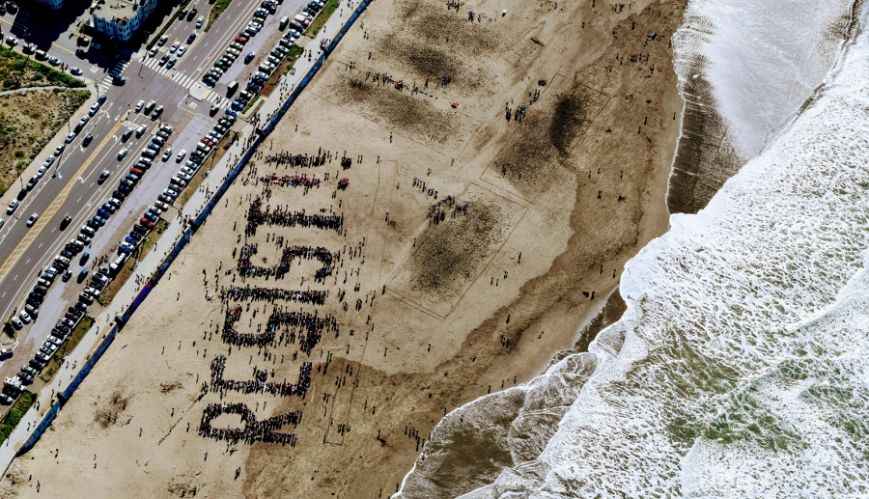When is it okay to break the law?

When is it okay to break the law?
8 March 2017
How do we decide what is a morally justifiable act of resistance? Photo: Tim Gouw
I’ve always prided myself on trying to be an informed voter, who researches the various policies we’re voting on. But, last election, I became a single-issue voter.
Knowing what is happening to refugees being held in detention centres, I resolved I would only vote for a party with a humane immigration policy – which ruled out both of the major ones.
But given that I couldn’t change these policies at the ballot box, what was I to do? When I was editing On Fire magazine, I had the opportunity to interview Captain Craig Farrell, who had been arrested for protesting against the Federal Government’s refugee policy.
He, along with a group of ministers from various denominations (as part of the Love Makes A Way movement), had staged a sit-in at the office of a government minister. They were warned if they did not leave that they would be arrested. They stayed.
Captain Farrell had the full support of Salvation Army leadership, and I personally agreed with his willingness to defy the police and break the law as part of his protest. This did lead me to thinking, though. How much obedience do Christians owe their governments? At what point do Christians have a responsibility to speak out against what they see as injustice? And in a pluralistic society, can Christians ever justify putting God’s law above that of the nation in which they live?
If we do believe that sometimes we are called by God to defy the law of the land, where do we draw the line between something like a sit-in protest, and someone blowing up an abortion clinic in the name of Christ? What is the difference between someone who stands up for the weak in the name of their religion, and someone who flies a plane into a building?
They may seem like extreme examples, but in both cases, the persons acting would say that they were obeying a higher morality than human law.
In the Western world, in the vast majority of cases, our first port of call should be to change the system from within. That can take many forms, from actually researching the policies of politicians we vote for, to lending our name to petitions and giving up our time to raise awareness of things that we see as unjust.
We are fortunate enough that our laws permit peaceful protest and we can get out there and make our voice heard. Or, it might mean paying a bit extra to buy products from companies whose business practices reflect our moral values – you would be surprised how quickly companies will react to loss of market share!
However, there are times when changing the system via lawful means is just not possible.
At the moment, it is actually illegal for medical professionals to comment on what is happening with refugees – a state of affairs more suited to a dictatorship than to a first-world democracy. And what about countries where there is no right to protest, or where criticising the government is a crime in itself?
I believe that the next step after exhausting avenues to change the system from within is civil disobedience, the refusal to obey unjust laws. This is an action of omission, not commission, where through our resistance injustice is thwarted.
There comes a time when all else has failed and we need to actually do something. So, how do we decide what is a morally justifiable act of resistance?
As Christians, it is a little simpler – we can run the litmus test of God’s word. Is our action of resistance in itself contrary to God’s law? If the action we feel called to do violates God’s law in itself – as in the example of the abortion clinic bomber – then that is a good sign we are in the wrong.
Another key is to ask ourselves this question: Is it us suffering for our moral stand, or is it others? Martyrdom is when we pay the price for our beliefs, rather than passing it on to those around us. With the example of Captain Farrell, they were the ones who were arrested and faced potential criminal prosecution. If they had done something that had required others to pay the price that would have not been laudable at all.
To me it is simple. Martyrs are willing to die for their beliefs, while fanatics are willing to kill for theirs. Martyrs are willing to take on the price of their convictions, while fanatics push it onto others. I know which one I believe we are called to be.
David Goodwin is the former editor of The Salvation Army Australia Southern Territory’s magazine, On Fire.